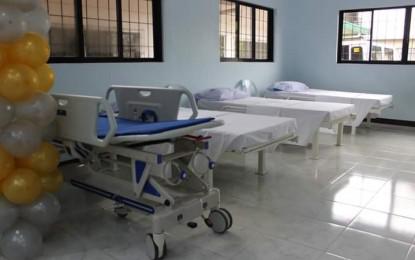
Senator Sonny Angara has filed a proposed legislation that will give the Department of Health (DOH) the authority to increase the bed capacity of all public hospitals under its supervision in order to address the mismatch in occupancy and improve the quality of government health services.
Under the present set-up, the department can only increase the bed capacity of DOH hospitals and upgrade their service capability through legislation, and this worries Angara because it limits access to medical and health services that every Filipino patient rightfully deserves.
“This bill seeks to authorize the Department of Health to administratively determine and approve the bed capacity and service capability of all DOH hospitals as necessary. The DOH has the capacity and expertise to assess gaps in service delivery,” Angara said in Senate Bill 1682. “By putting these government hospitals under the jurisdiction of the DOH, which manages theses hospitals in the first place, shall increase the efficiency in the delivery of health services to sustain the increasing demands of patients.”
Currently there are 70 DOH-retained public hospitals, of which 53 are general hospitals, 14 specialty hospitals, two infirmaries and one psychiatric facility which complement the devolved district, provincial and private hospitals in providing health care services.
Angara, however, underscored the need to improve the be capacity, noting that in 2016 alone, the average bed occupancy rate of all DOH hospitals was 136 percent and 61 percent of these hospitals had bed occupancy higher than the authorized bed capacity.
“The mismatch in bed occupancy compounded by lack of sufficient manpower and health services hinders the quality health care for patients and, if not very far, inadequate to sustain the growing health needs of the populace,” said Angara, one of the co-authors of the National Health Insurance Act that paved the way for the national health insurance program for all Filipinos regardless of their financial status.
Cognizant of the above considerations and the increase in population, there is a need to expedite the process for providing quality health services to the Filipino people, he added.
To illustrate the maldistribution of hospital beds as well as limited and dilapidated facilities particularly in poor areas, Angara cited data gathered by the Philippine National Statistics Authority in 2015 which showed that six out of 10 deaths were not medically attended. In 2013 National Demographic and Health Survey, only one in every nine Filipinos visited a health facility or sought advice or treatment.
“Unfortunately, with the increase in population, it is common for residents from far-flung provinces to travel for medical treatment purposes because of limited health services in their areas. The influx of patients leads to longer waiting time due to lack of available space in the hospital thus delaying the treatment,” he lamented.
“The patient needs to carry additional burden of sustaining the travel expenses which should be intended for his medical, surgical or therapeutic interventions,” he added. #
